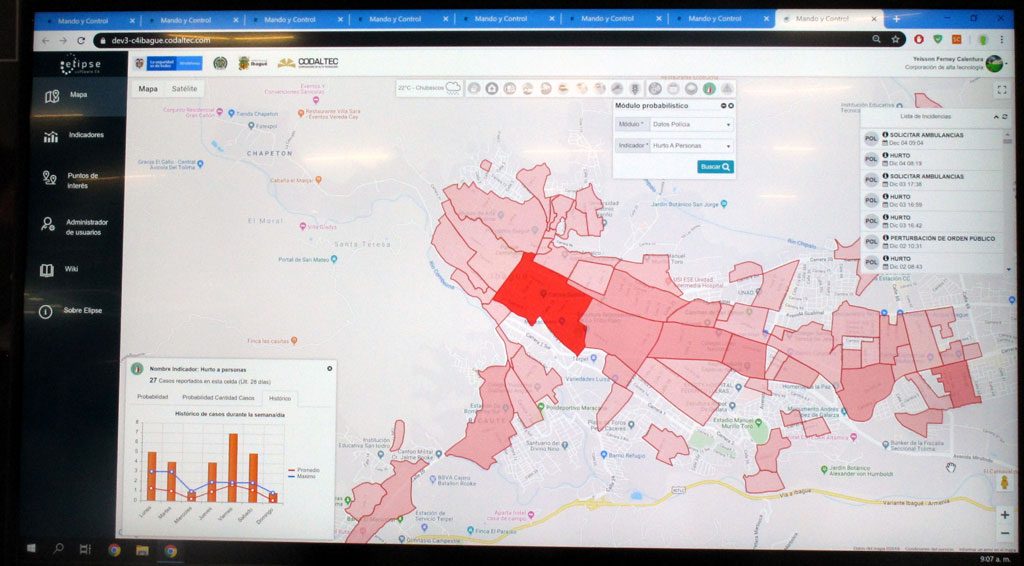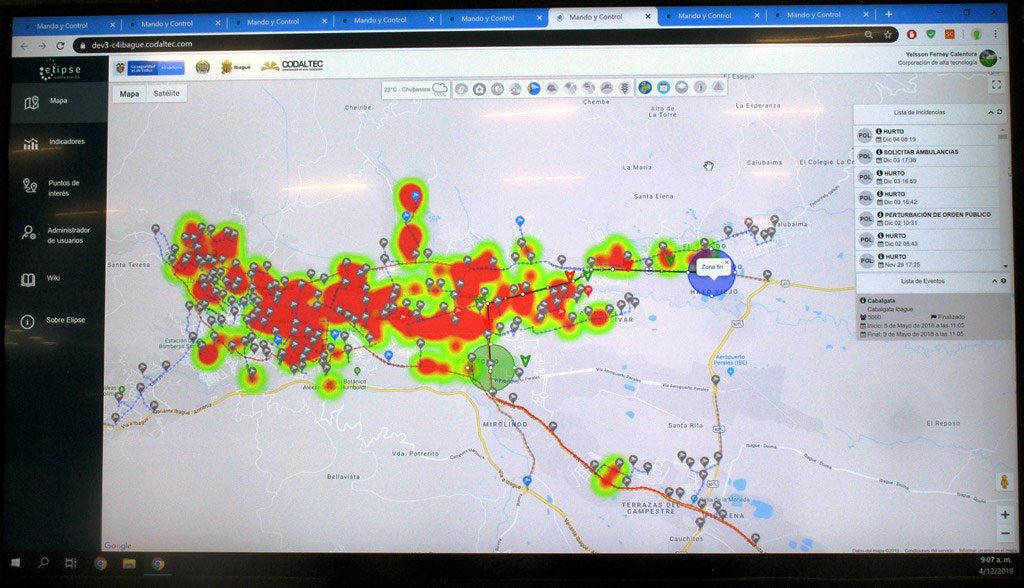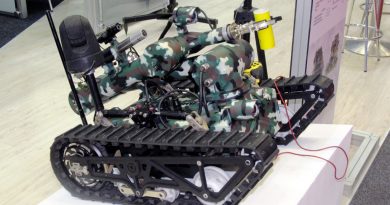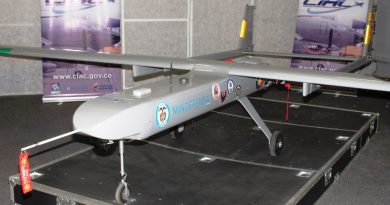
CODALTEC Elipse Unified Command and Control Center.
In the recent past CODALTEC (Corporación de Alta Tecnología para la Defensa), one of the four industrial companies part of the GSED (Grupo Social y Empresarial de la Defensa) which is part of the Colombian Ministry of Defence, developed the Elipse software, which allows different agencies and organizations, both in the public and private sectors, to work in a coordinated manner to facilitate the management of government, public safety, mobility, public health issues, as well as risk management and disaster attention The aforementioned areas are integrated in one single control room, thus allowing optimal prevention or crisis management.
The system has three access platforms. The first two are a mobile application for smartphones, and a web portal, allow citizens to report the different emergencies that they can observe where they are located. The third one is a C4 (Command, Control, Communications, and Computers) platform dedicated to the operational staff of the Command Center.

Real-time and geo-positioned alerts are received on the operating platform. This information is integrated with the video surveillance system owned by the city; in addition Elipse has an incident manager that is connected to the 123 of the National Police of Colombia (the equivalent to the 911 emergency number in the United States).
It is very important to note that the system has a probabilistic model, which identifies hot spots in the city. When analyzing the recurrence of criminal acts, this allows anticipating future events. This probabilistic model allows to mobilize resources to the hot spots that are identified, thus reducing the levels of crime and violence in those areas.
This Unified Command and Control Center, developed by about 30 systems engineers from CODALTEC, is one of the most modern in South America. At Expodefensa 2019 Elipse is being presented to the public. Major Luis Ariza of the CODALTEC IT Business Division reports that Elipse has already been sold to two cities in Colombia, Ibagué and Villavicencio, with excellent results. The approximate cost of the system delivered to the city of Ibagué in April 2019 was $ 100,000.
Photos by Paolo Valpolini



